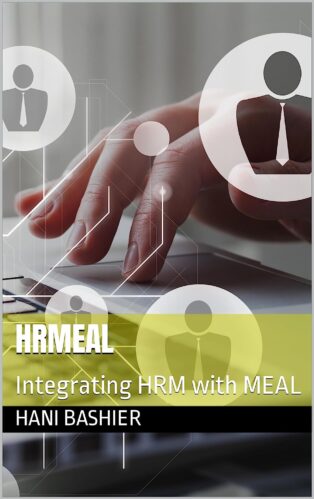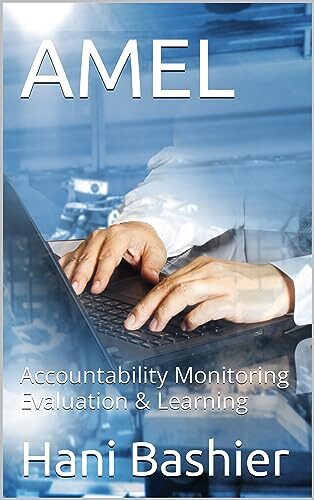Uncovered Areas in Monitoring, Evaluation, Accountability, and Learning: Exploring Untapped Opportunities for Enhancing Development Practice
Monitoring, Evaluation, Accountability, and Learning (MEAL) is a crucial aspect of development practice, ensuring that interventions are efficient, effective, and responsive to the needs and interests of the communities they serve. Despite the growing attention and investment in MEAL, there are still several uncovered areas that require further exploration and research. In this unique and repeated article, we will delve into these uncovered areas and discuss their potential implications for MEAL theory and practice. The following topics will be covered:
- Context-Sensitive and Culturally-Responsive MEAL
- MEAL in Complex and Adaptive Systems
- Participatory and Inclusive MEAL
- Integrating Technology and Innovation in MEAL
- Balancing Rigor and Flexibility in MEAL
- Capacity Building and Institutionalization of MEAL
- MEAL for Sustainable Development and Global Goals
- Ethical Considerations in MEAL
1. Context-Sensitive and Culturally-Responsive MEAL
One of the uncovered areas in MEAL is the need to better understand and address the influence of context and culture on development interventions and their outcomes. While some MEAL frameworks and tools consider context and culture to some extent, there is still much room for improvement in terms of:
- Developing context-specific indicators and benchmarks that reflect the unique social, economic, political, and environmental factors in the target communities and countries.
- Adapting MEAL methodologies and instruments to the cultural norms, values, beliefs, and practices of the target populations, ensuring their relevance, acceptability, and appropriateness.
- Engaging local stakeholders, including community members, local organizations, and government agencies, in the design, implementation, and evaluation of MEAL systems, promoting ownership, sustainability, and scalability.
2. MEAL in Complex and Adaptive Systems
Another uncovered area in MEAL is the application of complexity theory and systems thinking to better understand and manage the dynamic and interrelated nature of development interventions and their impacts. This involves:
- Recognizing and mapping the multiple and diverse actors, factors, and relationships that shape and influence development processes and outcomes, both within and beyond the intervention boundaries.
- Analyzing and anticipating the emergent, non-linear, and often unpredictable patterns of change and adaptation that result from the interaction between the intervention and its context.
- Designing and implementing adaptive and iterative MEAL strategies that enable continuous learning, feedback, and adjustment in response to the evolving context and system dynamics.
3. Participatory and Inclusive MEAL
Participation and inclusion are critical principles in development practice, emphasizing the active and meaningful involvement of all stakeholders, especially the most marginalized and vulnerable groups, in decision-making, implementation, and evaluation processes. In the context of MEAL, this entails:
- Ensuring that all stakeholders, regardless of their age, gender, ethnicity, disability, or socioeconomic status, have equal access to information, resources, and opportunities to participate in and influence MEAL activities.
- Developing and applying participatory and inclusive MEAL tools and methods, such as community scorecards, participatory impact assessments, or inclusive focus group discussions, that enable diverse stakeholders to share their perspectives, knowledge, and experiences.
- Strengthening the capacity and confidence of marginalized and vulnerable groups to engage in and contribute to MEAL processes, through training, mentoring, or networking support.
4. Integrating Technology and Innovation in MEAL
The rapid advancement of technology and innovation offers new possibilities and challenges for MEAL practice, with the potential to enhance data collection, analysis, communication, and learning. Some of the uncovered areas in this field include:
- Exploring and evaluating the use of digital and mobile technologies, such as smartphones, tablets, or GPS devices, for data collection, monitoring, and reporting, considering their advantages and limitations in terms of efficiency, accuracy, and accessibility.
- Investigating and applying innovative data analysis techniques, such as big data, machine learning, or social network analysis, to generate novel insights and evidence for decision-making and evaluation purposes.
- Assessing and promoting the ethical, responsible, and equitable use of technology and innovation in MEAL, considering issues such as data privacy, security, and digital divide.
5. Balancing Rigor and Flexibility in MEAL
One of the ongoing debates and challenges in MEAL is finding the right balance between rigor and flexibility in the design, implementation, and evaluation of interventions. This involves:
- Developing and applying mixed-methods approaches that combine the strengths of quantitative and qualitative data, enabling a more comprehensive and nuanced understanding of the intervention’s effects and contextual factors.
- Encouraging and facilitating adaptive and flexible MEAL plans and processes that respond to the changing needs, priorities, and capacities of the stakeholders, while maintaining the integrity and reliability of the MEAL system.
- Promoting a culture of learning and reflection among MEAL practitioners and stakeholders, valuing and integrating diverse forms of evidence,knowledge, and perspectives in the evaluation and decision-making process.
6. Capacity Building and Institutionalization of MEAL
For MEAL to be effective and sustainable, it is essential to invest in capacity building and institutionalization efforts at various levels, from individual practitioners to organizations and systems. Some of the uncovered areas in this domain include:
- Identifying and addressing the capacity gaps and needs of MEAL practitioners, organizations, and stakeholders, in terms of skills, knowledge, attitudes, or resources.
- Designing and delivering tailored and context-specific capacity building interventions, such as training, coaching, mentoring, or peer-to-peer learning, that enhance the competencies and performance of MEAL actors.
- Strengthening and formalizing the institutional and policy frameworks that support MEAL practice and culture, such as national evaluation policies, guidelines, or networks.
7. MEAL for Sustainable Development and Global Goals
With the global commitment to the 2030 Agenda for Sustainable Development and its 17 Sustainable Development Goals (SDGs), there is a growing demand and opportunity for MEAL to contribute to the monitoring, evaluation, and learning of these goals and targets. Some of the uncovered areas in this context include:
- Aligning MEAL frameworks and indicators with the SDGs and targets, ensuring that development interventions are not only effective and accountable but also contribute to the global goals and commitments.
- Developing and applying integrated and multi-level MEAL approaches that capture and analyze the interdependencies, synergies, and trade-offs between different SDGs and interventions, supporting more holistic and coherent development strategies.
- Enhancing the capacity and collaboration of national and regional evaluation systems and networks to generate, share, and use evidence and learning on SDG progress, challenges, and innovations.
8. Ethical Considerations in MEAL
Finally, the ethical dimensions of MEAL practice are often overlooked or underestimated, with potential implications for the rights, dignity, and wellbeing of the stakeholders involved. Some of the uncovered areas in this field include:
- Developing and promoting ethical guidelines and principles for MEAL practice, such as informed consent, confidentiality, or do-no-harm, that guide and safeguard the interactions between MEAL practitioners, stakeholders, and data subjects.
- Encouraging and facilitating ethical reflection and dialogue among MEAL actors, recognizing and addressing the power dynamics, biases, or conflicts of interest that may affect the credibility, legitimacy, and fairness of MEAL processes and outcomes.
- Ensuring that MEAL findings and recommendations are used responsibly and ethically, avoiding the misuse, manipulation, or suppression of evidence and learning for political, financial, or personal gain.
In conclusion, the uncovered areas in MEAL discussed in this article offer untapped opportunities and challenges for enhancing the theory and practice of development evaluation and learning. By exploring and addressing these areas, MEAL practitioners and stakeholders can contribute to more context-sensitive, adaptive, participatory, innovative, rigorous, flexible, sustainable, and ethical development interventions, ultimately improving the lives and futures of the communities and people they serve.








